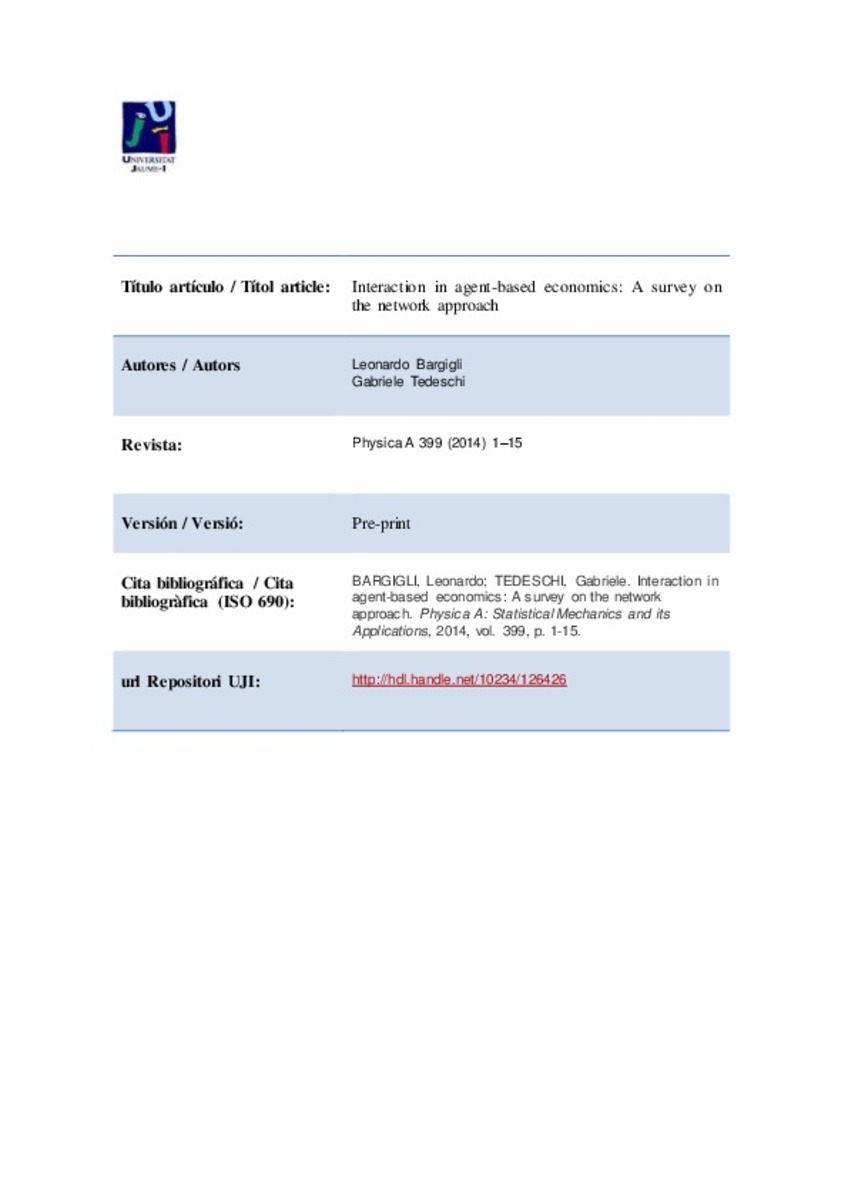Mostrar el registro sencillo del ítem
Interaction in agent-based economics: A survey on the network approach
| dc.contributor.author | Bargigli, Leonardo | |
| dc.contributor.author | Tedeschi, Gabriele | |
| dc.date.accessioned | 2015-07-06T14:44:33Z | |
| dc.date.available | 2015-07-06T14:44:33Z | |
| dc.date.issued | 2014 | |
| dc.identifier.issn | 0378-4371 | |
| dc.identifier.uri | http://hdl.handle.net/10234/126426 | |
| dc.description.abstract | In this paper we aim to introduce the reader to some basic concepts and instruments used in a wide range of economic networks models. In particular, we adopt the theory of random networks as the main tool to describe the relationship between the organization of interaction among individuals within different components of the economy and overall aggregate behavior. The focus is on the ways in which economic agents interact and the possible consequences of their interaction on the system. We show that network models are able to introduce complex phenomena in economic systems by allowing for the endogenous evolution of networks. | ca_CA |
| dc.format.extent | 15 p. | ca_CA |
| dc.format.mimetype | application/pdf | ca_CA |
| dc.language.iso | eng | ca_CA |
| dc.publisher | Elsevier | ca_CA |
| dc.relation.isPartOf | Physica A 399 (2014) 1–15 | ca_CA |
| dc.rights | © 2013 Elsevier B.V. All rights reserved. | ca_CA |
| dc.rights.uri | http://rightsstatements.org/vocab/InC/1.0/ | * |
| dc.subject | Network theory | ca_CA |
| dc.subject | Agent-based models | ca_CA |
| dc.subject | Heterogeneity | ca_CA |
| dc.title | Interaction in agent-based economics: A survey on the network approach | ca_CA |
| dc.type | info:eu-repo/semantics/article | ca_CA |
| dc.identifier.doi | http://dx.doi.org/10.1016/j.physa.2013.12.029 | |
| dc.rights.accessRights | info:eu-repo/semantics/openAccess | ca_CA |
| dc.relation.publisherVersion | http://www.sciencedirect.com/science/article/pii/S0378437113011539# | ca_CA |
| dc.type.version | info:eu-repo/semantics/submittedVersion |
Ficheros en el ítem
Este ítem aparece en la(s) siguiente(s) colección(ones)
-
ECO_Articles [691]







